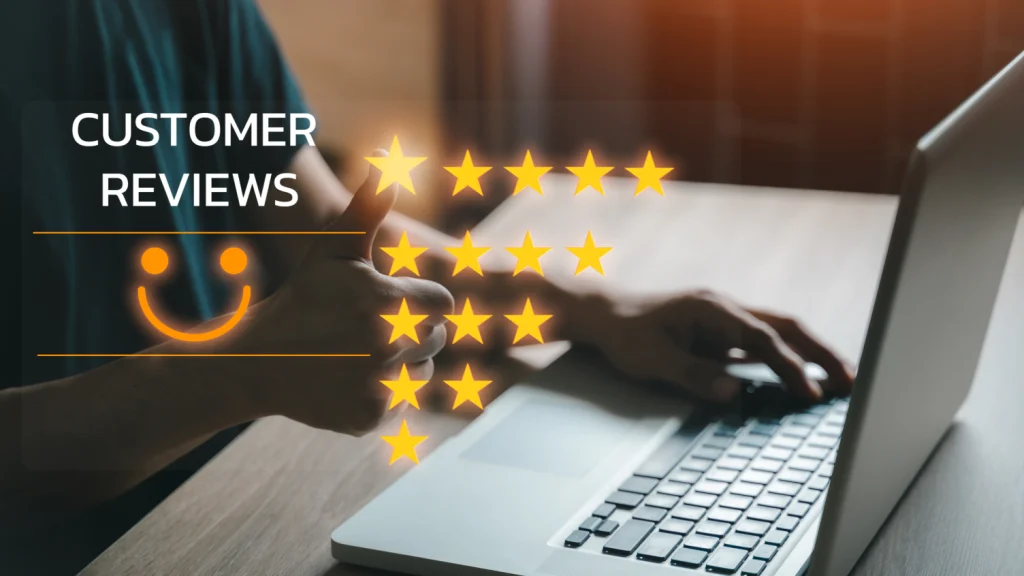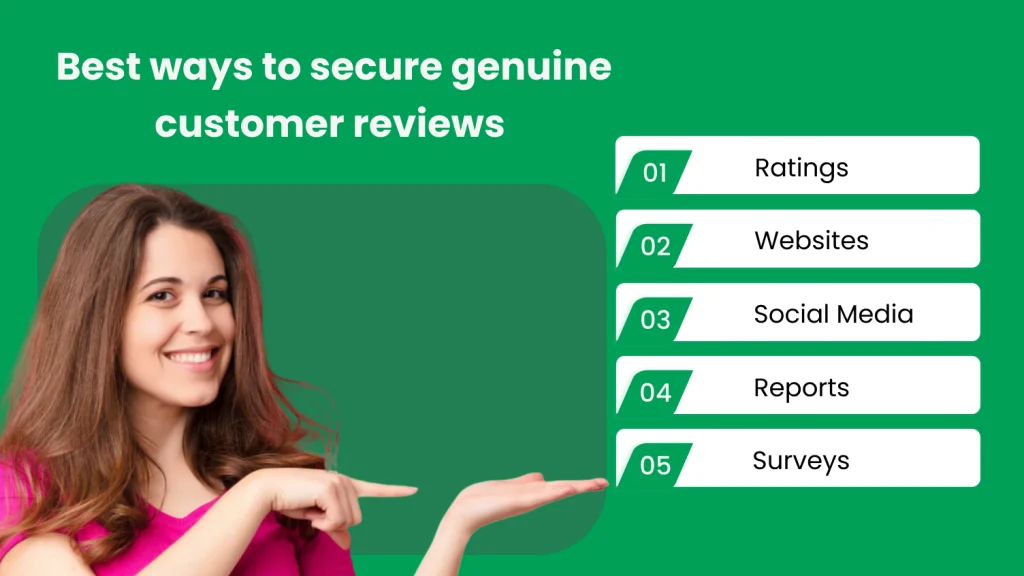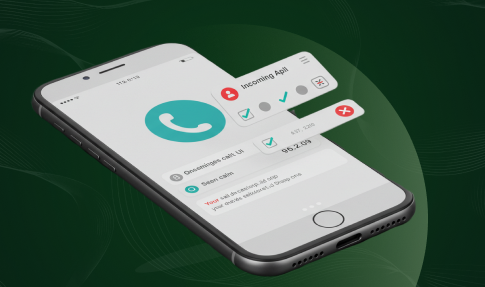“In the world of Internet Customer Service, it’s important to remember your competitor is only one mouse click away.” – Doug Warner
Customer support is the backbone of business development. It is equally important as sales and revenue. Customers voice their concerns and appreciation through customer reviews. These reviews can either be appreciative or highly critical. Observing both sides of this coin is equally vital.
In this blog, we shall look at what customer reviews are, why they are a key aspect of business, and how businesses can best manage and utilize them for their own growth.
What are customer reviews?

Customer reviews are the feedbacks, insights and opinions shared by the customers about a product or service on various platforms such as review websites, social media and app stores. The reviews detail customer’s experiences, satisfaction and dissatisfaction.
People today read customer reviews to make decisions on the purchase of products and services. Companies use customer reviews to gauge customer insights and areas of improvements. This enables companies to address the highlighted issues and make necessary changes in their offerings.
What are the different types of customer reviews?
The different types of customer reviews are as follows:
-
Product review
In product reviews, clients give feedback on the purchased product, expressing their opinions about its advantages and quality.
Product reviews enable businesses to get vital information and conduct necessary operations to improve their product quality and features.
-
Service review
The service review analyzes the overall service performance, including the ease of purchasing the product, timely delivery, and customer support.
Service reviews help improve service quality, maintain customer engagement, enhance customer trust and make sound decisions for the future endeavors.
-
Experience review
Experience review encompasses the entire experience of the client from buying the product to after-sales services.
Experience reviews help businesses build credibility, increase marketing efforts, and examine their strengths and weaknesses.
-
Feature Review
A feature review focuses mainly on the unique features of the product that made them distinguishable in the market. Feature review includes comparing the product to the similar existing products in the market and how well they satisfy customer needs.
It encourages businesses to provide detailed insights and extra tips on product usage so that the customers can make the most of their products. Also, research teams gain insights into the practical uses of the product, unique selling points and areas of improvement.
-
Complaint review
A review can be positive as well as negative. Complaints are also part of customer feedbacks that must be paid attention to to prevent loss. In complaint reviews, customers express dissatisfaction over the products, services, and overall experience.
Complaint reviews provide a balanced view of the products and enhance product development and customer service.
-
Testimonial
Testimonials are detailed positive reviews from customers that aid in promoting products. They can be personal stories, experiences, or opinions.
Customer testimonials offer credibility and social proof. They help in marketing brands on various websites, ads, social media, etc.
Why are customer reviews important?
According to research, more than 90% of consumers read customer reviews before purchasing a product or a service. This is an undeniable proof of the credibility of services provided. Let’s have a look at some of the important points.
1. Customer Relationship Management (CRM)
As Donald Porter said, “Customers don’t expect you to be perfect. But they do expect you to fix things when they go wrong.” Customer feedback, however good or bad, is equally important to determine your strengths and weaknesses.
When businesses pay attention to customer reviews and respond to it, it shows their customers that their opinions matter and that they are greatly valued. Doing so retains the existing customers and enhances customer loyalty towards the brand.
Encouraging customers to write reviews and share their experiences across a variety of platforms attracts new potential customers and strengthens customer relationships.
2. Business Growth
Effective review management not only gathers a large number of consumers but also helps lower the marketing budget. With more customer reviews, companies need to worry less about their various marketing strategies.
The more positive customer reviews the product has, the faster it sells out. The sales rate, conversion rates, and revenue significantly increase, booming the business status financially and geographically.
Customer reviews help provide businesses with vital information to compete against popular competitors.
3. Brand Recognition
Customer reviews build a reputable image of a brand. With more number of consumers buying and promoting the products and services, the brand eventually gets recognized in the market.
Appearing in the market among the existing competitors with unique features makes the brand recognizable in the crowded marketplace.
This ensures the sustainability of business in the long term and unshakable trust and reliability.
4. SEO
Plenty of reviews on multiple platforms can help increase SEO (Search Engine Optimization) rankings. Businesses with a higher number of reviews show up higher on browser searches and increase the overall visibility of the company online.
Reviews on social media and backlinks from other websites and blogs boost SEO efforts.
Positive reviews help boost local relevance, enhancing the chances of appearing in local search results and Google Maps.
Best ways to secure genuine customer reviews

In the past, businesses mainly depended on mouth-to-mouth reviews or written ones. But with the advancement of technology, there has emerged more than one way to get customer reviews. Let us look at some effective ones:
1. Ratings
User ratings are the most common way of securing a customer review. Customer satisfaction ratings are often numerical or letter grades. But the other most commonly used ratings for customer reviews are CSAT (Customer satisfaction Score) and (CES) Customer Effort Score.
CSAT rates overall satisfaction of customers with their product or service on a scale of 1-5 whereas, CES measures the effort the customers have put into resolving a task or interacting with a service.
Other kinds of ratings are in-app ratings, Net Promoter Score (NPS), binary ratings, qualitative ratings, emoji ratings, service quality dimensions ratings, and so on.
2. Websites
Every brand and businesses have their own review sites that allow customers to leave reviews and ratings on them. The review aggregator sites collect reviews from numerous customers, and bring them all into one place.
Websites emphasize detailed reviews rather than generic comments, and a team of reviewers constantly interacts with customers, increasing customer satisfaction. Unique review codes ensure the validity of customers and their purchase history.
Websites mainly use platforms such as G2 and Capterra to review customer feedback, ensuring that they are genuine.
3. Social Media
Social Media is considered to be the best review platform to get customer reviews. Social media sites such as TikTok and Instagram have emerged as platforms to share posts and videos about products and services and people’s pleasant or unpleasant experiences.
In recent years, many businesses have credited the use of social media platforms for gaining reliable customer reviews and significantly developing their business according to the feedback and received popularity.
4. Reports
The reports submitted by the research team, volunteers, or initial test populations are also vital in analyzing customer reviews.
Reports include results of automated fraud detection that is done to prevent multiple reviews from the same IP address as well are cross-verification with multiple feedback platforms, which ensures consistency.
Verification of customer reviews with their purchase history ensures that reviews come from actual customers. Also regular audits on the basis of the submitted reports, help identify and filter out fake and fraudulent reviews.
5. Surveys
Finally, another way to get genuine customer reviews is by conducting surveys. These surveys can be conducted online through emails and social media or they can be conducted through questionnaires, interviews, forms and so on.
Surveys help determine the detailed aspects of a product or service and how a personal touch can be added to cater to the needs of every individual.
The most popularly used survey tool is Net Promoter Score (NPS). It helps determine customer loyalty and measure the quality of products and services and the effectiveness of advertising campaigns.
Top 5 Customer Review Websites to Track
In this age of digitization, companies depend on several significant platforms to track their data and website activities. The most popular 5 websites for tracking customer reviews in 2024 are as follows:
- Trustpilot
- Google Reviews
- Yelp
- G2
- Capterra
1. Trustpilot
Tustpilot is a leading platform for online customer reviews, with around 714,000 businesses and over 120 million reviews worldwide.
Advanced analytics tools, response management, and review collection help monitor customer feedback, aiding businesses in understanding satisfaction and identifying areas for improvement – enhancing trust and credibility with potential customers.
Businesses with high ratings on Trustpilot often see a 10-15% increase in their ratings.
2. Google Reviews
Google Reviews is another popular customer review tracking site integrated into Google’s ecosystem. It tracks and manages customer feedback by aggregating reviews and analyzing ratings and metrics.
Google processes around 200 million business reviews each year. On Google Reviews, customers can leave star ratings or upload photos of their experiences, providing context and credibility.
Reviews help boost Local Search Engine Optimization (SEO), which helps potential customers quickly assess the quality of a business.
Businesses with higher ratings on Google Reviews are 70% more likely to attract customers compared to those with lower ratings.
3. Yelp
Yelp is regarded as one of the top review sites for customer reviews in terms of travel and entertainment. Millions of people tend to use it to read reviews before visiting local businesses, local restaurants, etc.
Businesses include their picture, business hours, and contact information to be displayed on the site. Companies can claim their Yelp rating free of cost.
More positive reviews on Yelp help businesses’s visibility and improve their social image and reliability. It also helps businesses adjust their offerings and improve their service and products.
Yelp is a user friendly platform and is currently estimated to have 92 million mobile users per month.
4. G2
G2 is one of the top platforms for tracking customer reviews and provides detailed insights from the B2B community. It mainly focuses on software businesses and SaaS companies. Buyers use the platform to discover and evaluate software.
G2 allows companies to compare software solutions, features, and pricing and helps them sell more trending and specialized products.
Using G2, businesses can see a list of customers who are actively looking to purchase products. The reviews can help improve products and address customer concerns.
More than 60 million users use G2 and have more than 1.7 million reviews.
5. Capterra
Capterra is another popular B2B software review platform used by businesses to track customer reviews and improve business based on customer feedback.
Capterra offers a range of software solutions across its platforms, making it easy for businesses to find one tailored to their specific needs. Users can filter products based on pricing features and user reviews.
Capterra provides detailed user reviews and ratings, along with expert articles, guides, and comparisons, to assist businesses in understanding current industry trends, best practices, and key considerations to boost their business growth.
The platform is believed to host around 1.5 million verified reviews across the globe for thousands of software products.
These sites make businesses visible to more customers, enhancing their reach and business. They also focus on new trends and diversity in customer data.
Conclusion
In today’s digital landscape, customer reviews foster transparency and trust between consumers and businesses, especially in the online marketplace.
In a nutshell, customer feedbacks are a vital part of customer experience. Businesses must find a way to leverage this element to exist and compete in the tough market.
FAQs
How can you improve your customer reviews?
Customer reviews can be improved by providing satisfactory services, actively engaging with customers, and addressing any issues instantly and effectively.
How to increase customer feedback?
Customer feedback can be increased by providing a friendly and secure platform for customers to voice their concerns, asking the right questions, reaching out personally, providing different incentives in exchange of their reviews and following up with the customers.
How to get more positive reviews for your business?
Be on multiple review platforms, improve the quality of the products and services delivered, respond well to positive as well as negative reviews, and finally share reviews on social media to increase visibility.
How to improve reviews on Google?
Some ways to improve reviews on Google are as follows:
- Ensure that all the review platforms are set up
- Share the link of Google review via Email or SMS
- Create an interface that makes it easy to leave a review
- Ask the right questions
- Engage with the customers promptly
What are the benefits of quality reviews?
Quality reviews build trust, enhance the business’s reputation, improve search engine rankings, and attract more customers by providing social proof of products or services.
What should be included in a customer review?
A customer review should include actual details about the customer’s experience, any specific stand out features, and any suggestions that may encourage companies to do better in the future.
Prasanta, founder and CEO of Dialaxy, is redefining SaaS with creativity and dedication. Focused on simplifying sales and support, he drives innovation to deliver exceptional value and shape a new era of business excellence.








